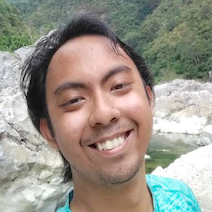

If we take care of others and fight for their rights, who takes care of us?
This is what my colleagues and friends from the civil society/non-profit sector jokingly ask among us. During drinking sessions and break times in meetings, this question seems like a fleeting thought. But when we reflect upon it, it makes actual sense to ask for it. How do we take care of activists and development workers?
In the current administration, marginalized sectors are continuously under threat, and human rights are under attack. Fortunately, human rights workers and activists are always ready to mobilize and fight for the rights of these sectors. (READ: [OPINION] Activism, from someone you wouldn't expect)
Development work is a very fulfilling job. Despite being less glamorous compared to corporate jobs, development work makes up for this by exposing you to almost all ways of life, featuring different kinds of people and set in different places. Development work offers a diversity of experience that corporate work cannot provide. It only promises a decent amount of compensation, but the experience of helping marginalized groups fight for their rights is worth more than any amount of money.
Working with marginalized sectors is never easy. Various reports on development workers, activists, and community organizers being subject to harassment, intimidation, and even illegal arrests and violence show the dangers attached with development work. We live in a time when helping others improve their lives could cost you and your loved ones' personal safety.
Simultaneously, development workers and activists face not only external challenges but also hardships within themselves and their organization. It’s a physically straining job – working with erratic schedules sometimes lasting until the wee hours of the night,and traveling from one province to another for field work.
There is also a lot of anxiety when it comes to funding for projects, learning that members of the communities we work with are being harassed by armed forces, or finding out that someone in the movement has died. Development work takes a great mental and emotional toll. (READ: [OPINION] Confessions of a former rah-rah activist)
But no matter how physically, mentally, or emotionally draining work can be, we cannot just abandon it. The love and dedication we put into our work and advocacy doesn’t simply fade away – they create a special space in our hearts, which we will carry with us forever.
So how can we better care for our activists?
Just like any other human being, we also get our hearts broken by the hardships we face at work. At the end of the day, we also want to feel and receive the same love we give to our work. No matter how selfless people think of us and our profession, we still need love to compensate for the love that we give to the people we serve. We find comfort in the idea that we are also loved and appreciated. We want to be reassured that our physical, emotional, and mental well-being also matters. Even for just a brief moment, we want to be selfish after a long day of offering our hearts and souls to others. (READ: [OPINION] The truth in placards: Why activists are not a nuisance)
So the next time you see a friend engaged in development work and activism, ask them how they’re feeling; they need friends that respect and love them and the work they do. Be with them and make them feel that their well-being is just as important as the communities and sectors they serve. When you reunite with your fellow activists and development workers in meetings or mobilizations, make them feel that you are one with them. No matter how feisty we seem, we still need the love and solidarity of our comrades.
Collective action has been historically proven to be effective in overthrowing oppressive systems, and I believe it is with this same sense of collectivism, not just in activism but also in loving our fellow activists and human rights workers, that we can continue triumphing over current oppressors and all others that will try to follow. – Rappler.com
Lean Miguel Novero is a queer activist and feminist from Bulacan. He works closely with farmers and indigenous peoples as a development worker and volunteer for PUP Kasarianlan, a LGBTQ+ student organization in his alma mater the Polytechnic University of the Philippines.